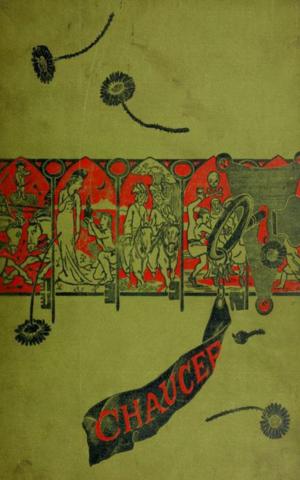Plays of Sophocles: Oedipus the King; Oedipus at Colonus; Antigone
Bestsellers and famous Books
Nonfiction, Entertainment, Drama, Greek & Roman, Fiction & Literature| Author: | Sophocles | ISBN: | 9783736417847 |
| Publisher: | anboco | Publication: | October 26, 2016 |
| Imprint: | Language: | English |
| Author: | Sophocles |
| ISBN: | 9783736417847 |
| Publisher: | anboco |
| Publication: | October 26, 2016 |
| Imprint: | |
| Language: | English |
Oedipus the King orOedipus Rex, is an Athenian tragedy by Sophocles that was first performed around 429 BC. Originally, to the ancient Greeks, the title was simply Oedipus, as it is referred to by Aristotle in the Poetics. It is thought to have been renamed Oedipus Tyrannus to distinguish it from Oedipus at Colonus. In antiquity, the term "tyrant" referred to a ruler, but it did not necessarily have a negative connotation. Of his three Theban plays that have survived, and that deal with the story of Oedipus, Oedipus the King was the second to be written. However, in terms of the chronology of events that the plays describe, it comes first, followed by Oedipus at Colonus and then Antigone. Prior to the start of Oedipus the King, Oedipus has become the king of Thebes while unwittingly fulfilling a prophecy that he would kill his father, Laius (the previous king), and marry his mother, Jocasta (whom Oedipus took as his queen after solving the riddle of the Sphinx). The action of Sophocles' play concerns Oedipus' search for the murderer of Laius in order to end a plague ravaging Thebes, unaware that the killer he is looking for is none other than himself. At the end of the play, after the truth finally comes to light, Jocasta hangs herself while Oedipus, horrified at his patricide and incest, proceeds to gouge out his own eyes in despair. In his Poetics Aristotle refers several times to Oedipus the King to exemplify aspects of Greek tragedy. Oedipus at Colonus is one of the three Theban plays of the Athenian tragedian Sophocles. It was written shortly before Sophocles' death in 406 BC and produced by his grandson Sophocles at the Festival of Dionysus in 401 BC. In the timeline of the plays, the events of Oedipus at Colonus occur after Oedipus the King and before Antigone; however, it was the last of Sophocles' three Theban plays to be written. The play describes the end of Oedipus' tragic life.
Oedipus the King orOedipus Rex, is an Athenian tragedy by Sophocles that was first performed around 429 BC. Originally, to the ancient Greeks, the title was simply Oedipus, as it is referred to by Aristotle in the Poetics. It is thought to have been renamed Oedipus Tyrannus to distinguish it from Oedipus at Colonus. In antiquity, the term "tyrant" referred to a ruler, but it did not necessarily have a negative connotation. Of his three Theban plays that have survived, and that deal with the story of Oedipus, Oedipus the King was the second to be written. However, in terms of the chronology of events that the plays describe, it comes first, followed by Oedipus at Colonus and then Antigone. Prior to the start of Oedipus the King, Oedipus has become the king of Thebes while unwittingly fulfilling a prophecy that he would kill his father, Laius (the previous king), and marry his mother, Jocasta (whom Oedipus took as his queen after solving the riddle of the Sphinx). The action of Sophocles' play concerns Oedipus' search for the murderer of Laius in order to end a plague ravaging Thebes, unaware that the killer he is looking for is none other than himself. At the end of the play, after the truth finally comes to light, Jocasta hangs herself while Oedipus, horrified at his patricide and incest, proceeds to gouge out his own eyes in despair. In his Poetics Aristotle refers several times to Oedipus the King to exemplify aspects of Greek tragedy. Oedipus at Colonus is one of the three Theban plays of the Athenian tragedian Sophocles. It was written shortly before Sophocles' death in 406 BC and produced by his grandson Sophocles at the Festival of Dionysus in 401 BC. In the timeline of the plays, the events of Oedipus at Colonus occur after Oedipus the King and before Antigone; however, it was the last of Sophocles' three Theban plays to be written. The play describes the end of Oedipus' tragic life.















